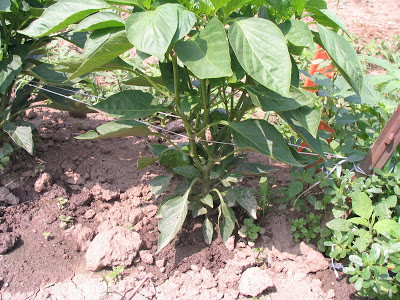Acetic Acid (Vinegar) as an Herbicide
go.ncsu.edu/readext?466589
en Español / em Português
El inglés es el idioma de control de esta página. En la medida en que haya algún conflicto entre la traducción al inglés y la traducción, el inglés prevalece.
Al hacer clic en el enlace de traducción se activa un servicio de traducción gratuito para convertir la página al español. Al igual que con cualquier traducción por Internet, la conversión no es sensible al contexto y puede que no traduzca el texto en su significado original. NC State Extension no garantiza la exactitud del texto traducido. Por favor, tenga en cuenta que algunas aplicaciones y/o servicios pueden no funcionar como se espera cuando se traducen.
Português
Inglês é o idioma de controle desta página. Na medida que haja algum conflito entre o texto original em Inglês e a tradução, o Inglês prevalece.
Ao clicar no link de tradução, um serviço gratuito de tradução será ativado para converter a página para o Português. Como em qualquer tradução pela internet, a conversão não é sensivel ao contexto e pode não ocorrer a tradução para o significado orginal. O serviço de Extensão da Carolina do Norte (NC State Extension) não garante a exatidão do texto traduzido. Por favor, observe que algumas funções ou serviços podem não funcionar como esperado após a tradução.
English
English is the controlling language of this page. To the extent there is any conflict between the English text and the translation, English controls.
Clicking on the translation link activates a free translation service to convert the page to Spanish. As with any Internet translation, the conversion is not context-sensitive and may not translate the text to its original meaning. NC State Extension does not guarantee the accuracy of the translated text. Please note that some applications and/or services may not function as expected when translated.
Collapse ▲
5/12/2023 – We still get many hits on this post, so be sure to check the updates at the end.
8/13/2013 – I was having a discussion with a colleague about organic agriculture the other day and the subject of weed control came up. Here is western North Carolina weed control is one of the major challenges in an organic system. He made the comment that there are no effective organic herbicides. I have tested a number of commercial organic herbicides and wasn’t too impressed. The biggest problem I had with those herbicides was that for them to be effective they needed to be applied when the weeds were very small. I invariably missed that narrow window of weed size for effective control.
But in the past two years I’ve been reading about and hearing from growers about the effective use of vinegar for weed control. I remember trying household (5% acetic acid) vinegar years ago and not being impressed, but higher concentration products are now available. But do they really work? Is there research to back it up? I quick search of the literature (internet) showed that they can indeed be effective.
The study that I think demonstrated this very clearly and simply is this one from Cornell Extension:
Evaluation of acetic acid based herbicides for use in broad-spectrum turfgrass and weed control
Another from Cornell University
Vinegar for Weed Control in Bell Pepper and Broccoli
And one by researchers in Egypt and Florida
Natural Herbicides
Update 2018: I was pleased to learn that people are still reading this article! Unfortunately, I found out about it when a NC extension agent contacted me to let me know that none of the links above worked anymore. So, I found those articles and updated the URLs. Hopefully they will work for a while. I have also found one more article that may be of interest:
A Cornell study that shows more concentrated vinegar is not necessarily better:
2020 Additions:
A US article that shows little benefit to adding oils to acetic acid for weed control:
Impact of Acetic Acid Concentration, Application Volume, and Adjuvants on Weed Control Efficacy
A very positive article about using acetic acid as an herbicide from Egypt:
Authored by Jeanine Davis, NC Alternative Crops & Organics Program, Department of Horticultural Science, NC State University.


